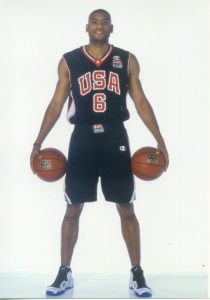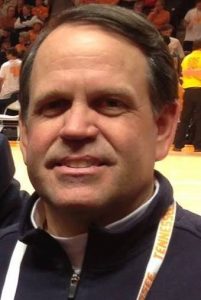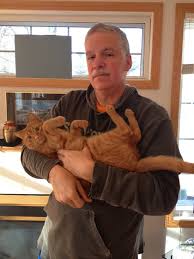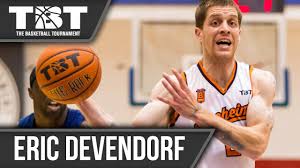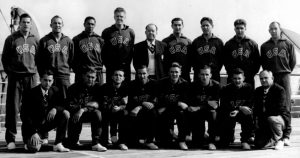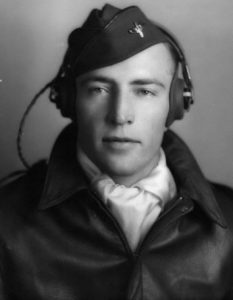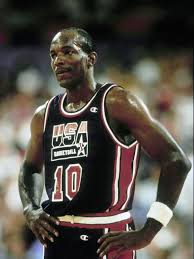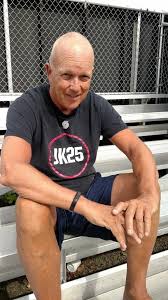The NBA Finals date back to 1947 (when they were known as the Basketball Association of America Finals) and the very 1st NCAA tourney was held in 1939. Olympic basketball competition is even older: it debuted as a demonstration event in 1904 and the men’s version became a medal sport in 1936, with the women finally getting their chance to go for the gold in 1976. The United States has dominated Olympic basketball competition from the start: the men have won 15 gold medals in the 18 tournaments they have participated in during the past 84 years, while the women have won 8 gold medals in the 10 tournaments in which they have competed during the past 44 years. Those of you who were looking forward to the 2020 Olympics opening ceremonies in Tokyo on July 24, 2020 will have to wait an extra 364 days, as the coronavirus caused a postponement until July 23, 2021. Due to the absence of college basketball since mid-March, HoopsHD’s Jon Teitel decided to fill the void by trying to interview as many prior Olympic players/coaches as possible so that you have something to read this summer while not watching the Summer Games. We continue our coverage by chatting with former Tennessee associate SID David Grim about Allan Houston winning a gold medal in 2000. Today marks the 21st anniversary of Allan scoring 15 PTS for the Knicks in Game 5 of the 1999 NBA Finals vs. San Antonio.
In 1989 at Ballard High School in Louisville Allan was named a McDonald’s All-American: what made him choose Tennessee, and how did he like playing for his father Wade (the 1st African-American head coach in Tennessee history)? He had signed with Louisville in November of his senior year during the early signing period because his dad was an assistant there. Wade was hired at Tennessee in early April and Louisville reluctantly gave Allan his release. The process was not really finalized until he enrolled in August: it was a long summer to get through the NCAA eligibility committee. Allan was probably the most decorated incoming freshman that we ever had. Our office was in the old arena where Ernie Grunfeld/Bernard King played: Allan was in there all the time shooting baskets and after watching him I began to think that he would shatter the school’s scoring record.
In 1992 he was 1 of 8 college players chosen for the USA Basketball Development Team, and on June 24th of that year he had a 62-54 win over the Dream Team, but Development Team coach Mike Krzyzewski later said that Dream Team coach Chuck Daly “threw the game” (through such tactics as intentionally limiting Michael Jordan’s minutes and making unusual substitutions) to teach the NBA players that they were not unbeatable: how on earth did the Development Team pull off the upset, and how pissed were the pro players?! I do not know how pissed they were but it certainly got their attention. Allan was a big part of that: the Dream Team actually lost by 22 PTS! Chuck Daly told them to turn off the scoreboard so the media would not see it: his players were in a state of shock. The next day the NBA guys drilled them but it remains the only game ever lost by the greatest basketball team ever.
He was a 2-time All-American: what did it mean to him to receive such outstanding honors? It meant a lot to him because he was 1 of the best in his class, which included his friend Shaquille O’Neal. He always played for team USA in international competition. He certainly should have made the 1st team and it was also disappointing that he never got to play in the NCAA tourney.
He graduated as the SEC’s all-time leader with 346 career 3PM, remains the all-time leading scorer in school history with 2801 career PTS, and is the #2 scorer in SEC history to Pete Maravich: what was the key to his scoring ability? He was just a pure shooter and the focal point of our offense even while leading the team in AST during each of his 1st 3 years. He could catch-and-shoot but could also create his own shot and drive to the basket. He was our big gun and got plenty of shots, which we needed him to do.
He averaged 36 MPG, started all 128 games during his college career, and never missed a single game: how crucial was his endurance/stamina to his success? He was in tip-top condition and continued to get stronger as he got older. He probably would not have stayed for 4 years if his dad was not the coach: he always wanted to do well to help his father and I think that there was a lot of pressure there.
In 1993 he was drafted 11th overall by Detroit (3 spots behind Vin Baker): did he see that as a validation of his college career, or the realization of a lifelong dream of reaching the NBA, or other? I would say a little of both. It was always his goal to play in the NBA. He grew up in Louisville and wanted to play for his dad there but we are glad that he came to Knoxville.
In the decisive Game 5 of the 1999 Eastern Conference 1st round as a player for the Knicks he made a running one-hander off the rim/backboard with 0.8 seconds left in a 1-PT win at #1 seed Miami: what are your memories of 1 of the most-famous shots in franchise history? I followed the Knicks while he was there but do not remember that specific game.
He played for team USA at the 2000 Olympics: what did it mean to him to represent his country, and what did it mean to him to win a gold medal? Both of those things meant a lot to him and are just another in his long series of accomplishments. He had talent/hard work so it must have been very gratifying. He was always a great kid to be around and was the hardest worker.
In 2003 he led the NBA with 91.9 FT% and his 86.3 career FT% remains top-40 all-time: what was his secret for being a great FT shooter? There is no secret: he was a great shooter to start with and took a lot of pride in practicing his FTs. He played PG for us as a freshman and anytime we had a lead the opponent was in big trouble down the stretch because he would go to the line and not miss. 1 of his most memorable FTs here was an intentional miss. We were trailing Kentucky by 3 at home late in the game and he had a pair of FTs. He made the 1st 1, missed the 2nd 1 on purpose, and we ended up getting the rebound/getting fouled while making a shot/making the FT: it was a great moment that ironically came from a missed FT!
In 2007 he was named an SEC Legend, in 2009 he was selected to the UT Basketball All-Century Team, and in 2018 he was inducted into the Tennessee Sports Hall of Fame: when people look back on his career, how do you think that he should be remembered the most? He is obviously on the Mount Rushmore of Tennessee basketball players and is 1 of the best all-around players that we have ever had. I hope we do not lose sight of everything he did, which will probably not happen because his jersey is up in the rafters.

